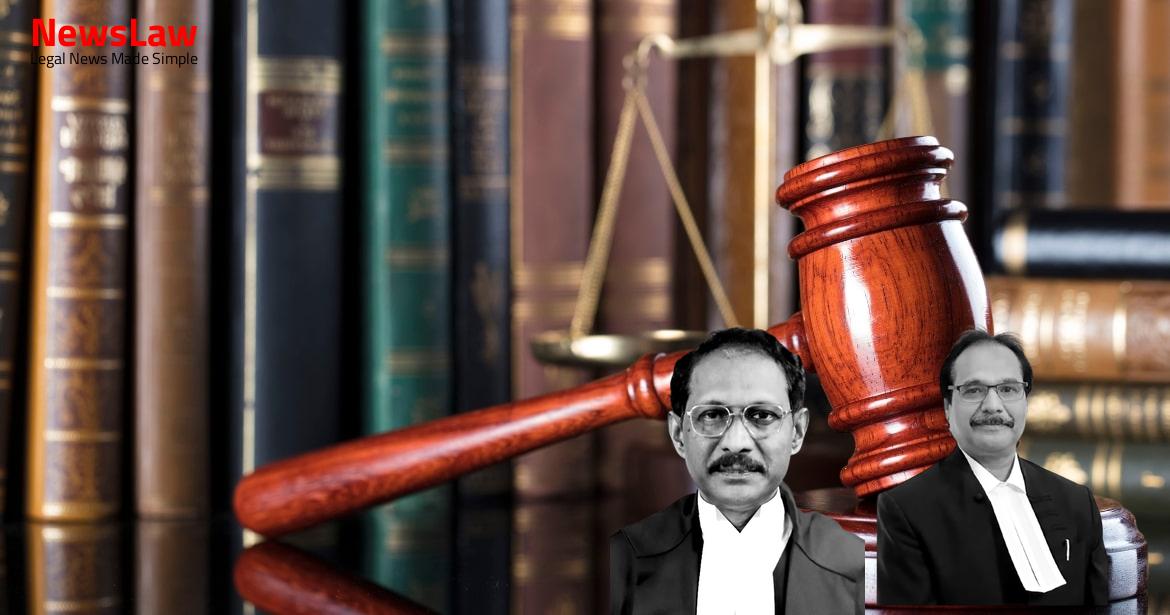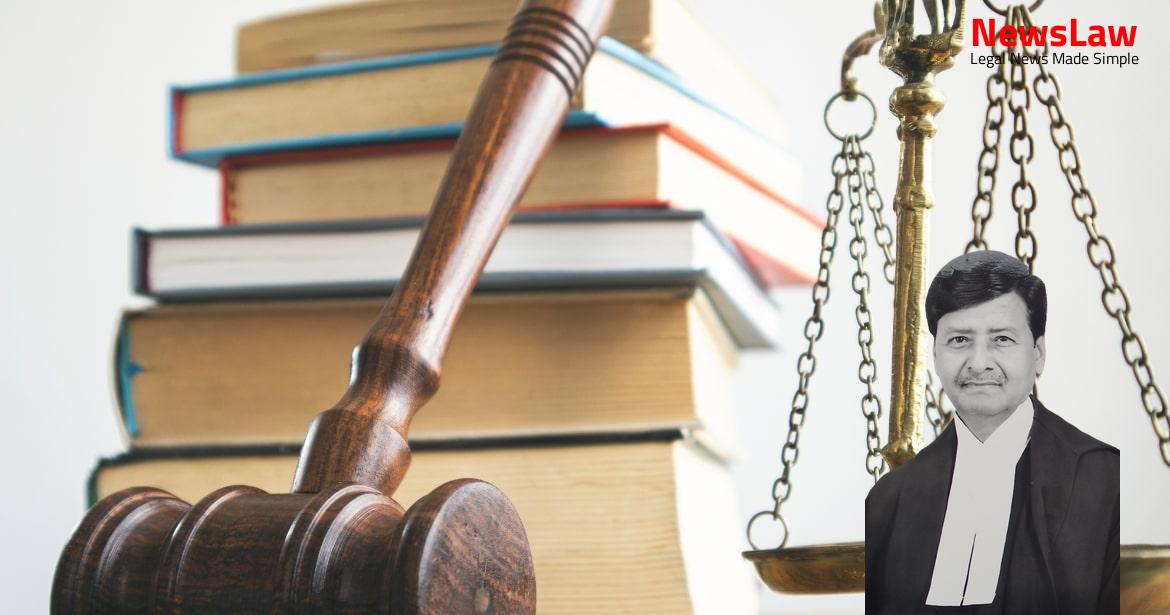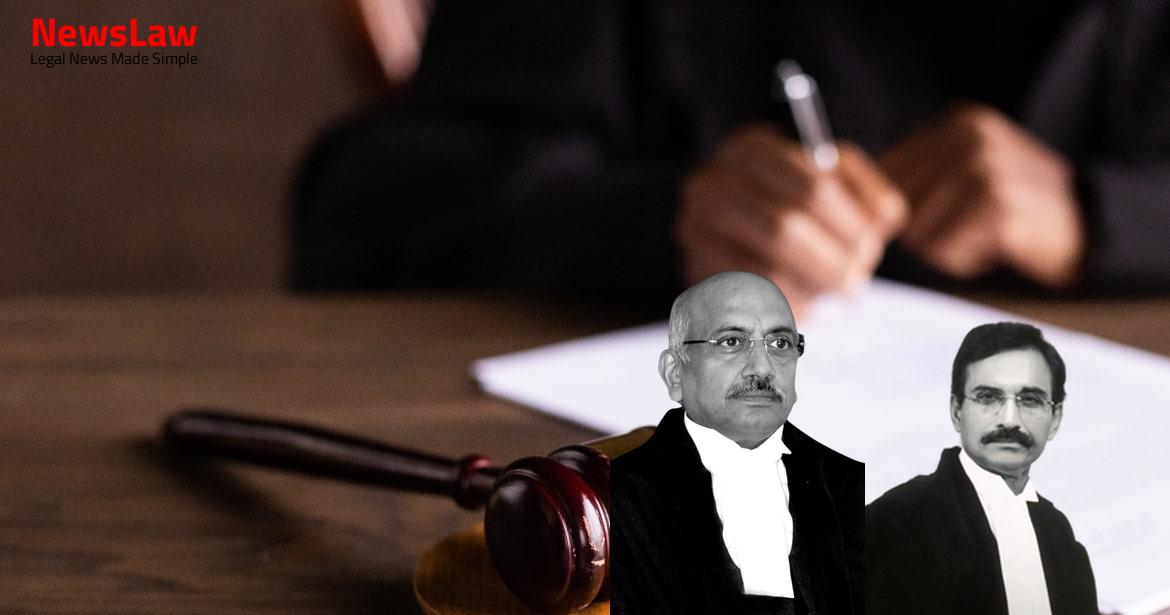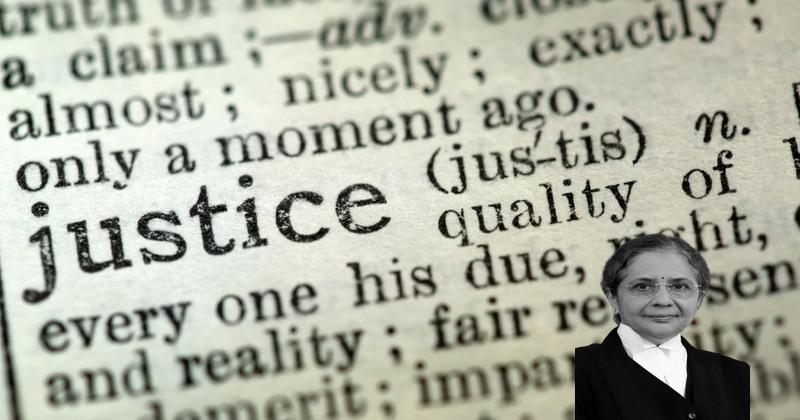In a significant ruling by the Supreme Court of India, a judgment in the custodial death case sheds light on the ramifications of criminal conspiracy. The case, concerning the appellant and allegations of custodial death, delves into the intricate legalities surrounding criminal intent and collective actions. This summary reflects on the Court’s analysis of the prosecution’s evidence and the absence of sufficient grounds to proceed against the appellant, offering insights into the nuances of criminal law and conspiracy charges.
Facts
- Appellant registered a case under Section 392 of the IPC alleging robbery of business proceeds from his cashier/accountant and another individual.
- Incident occurred while they were collecting proceeds from shops in Meerut and Modi Nagar.
- Robbery took place in front of Ginni Devi School in Modi Nagar while one individual was collecting from Poonam Sales.
- Bag containing business collection and documents was snatched at gunpoint by two individuals on a motorcycle.
Also Read: Life Insurance Corporation of India vs. Narender Kumar Kantilal Modi – Legal Case Summary
Arguments
- The appellant moved an application for discharge in Crime No. 371/1993 regarding the custodial death of Ram Kishore, who was the appellant’s cashier/accountant.
- The charge was based on a complaint filed by the appellant.
- The charge filed by the CBCID in the custodial death case states that the appellant is the informant.
- The appellant’s counsel argued for the discharge based on these points.
- The final report in the custodial death case dated 21.02.2000 shows the appellant as witness No.1 and accused No.3.
- There is a lack of material to implicate the appellant under Section 120B, IPC or Section 34, IPC.
- Even statements of witnesses including the deceased’s family members do not support the allegation of criminal conspiracy against the appellant.
- Witnesses such as Smt. Santosh, Shri Promod Kumar, and Shri Bhim Singh do not reveal any evidence of a criminal conspiracy or common intention involving the appellant.
Analysis
- The Court analyzed the application for discharge filed by the accused based on the records and documents submitted by the prosecution.
- The Court noted that suspicion and suppositions without foundational support from the materials produced by the prosecution cannot be the basis for rejecting the application for discharge.
- The Court emphasized the importance of considering only the materials produced by the prosecution at the stage of Section 227, Cr.PC, and disregarding any defense case or material presented by the accused.
- The Court highlighted the necessity for the Court to determine the existence of sufficient grounds for proceeding against the accused solely based on the record of the case and documents submitted, after hearing submissions from both the accused and the prosecution.
- The Court reiterated the requirement for the Court to record reasons for rejecting an application for discharge under Section 227, providing a basis for potential appellate review.
- The Court discussed the absence of legal evidence and the implications for framing charges, stressing the importance of a prima facie case for proceeding to trial.
- The Court cautioned against making a roving inquiry or weighing evidence beyond the scope of Section 227, emphasizing the need to adhere to the limitations of the provision.
- The Court referred to relevant legal provisions and prior decisions to establish the parameters and considerations for evaluating applications for discharge under Section 227, Cr.PC.
- The expression ‘not sufficient ground for proceeding against the accused’ as per Section 227, Cr.PC, refers to the case and documents mentioned under Section 209, Cr.PC, which outlines the commitment of a case to the Court of Session when the offence is exclusively triable by it.
- The Judge, while considering an application for discharge, must assume the materials brought on record by the prosecution are true and evaluate whether the facts disclosed meet the elements constituting the offence.
- The Judge, at the Section 227 stage, sifts the evidence to determine if there are enough grounds to proceed against the accused based on the evidence or documents provided by the prosecution, showcasing the suspicious circumstances against the accused.
- If the materials produce grave suspicion not properly explained by the accused, the Judge can frame charges, proceeding with the trial. However, if there is only slight suspicion without being grave, the accused may be discharged.
- The offence of criminal conspiracy necessitates an agreement between two or more persons to commit a criminal act, regardless of whether the offence is carried out, as the conspiracy itself is an offence.
- All conspirators are liable for acts committed as a result of the conspiracy, and the sufficiency to frame a charge is based on strong suspicion emerging from the prosecution’s evidence, not on suppositions or conjectures.
- The standard for conviction is not applicable at the charge-framing stage; a strong suspicion based on material on record is adequate to frame charges and proceed with the trial.
- The prosecution case as revealed in the final report dated 21.02.2000 in Crime No.371/1993 is crucial.
- The rejection of the appellant’s discharge application being concurrent does not justify confirming the impugned orders.
- In the absence of a prima facie case based on prosecution materials, a person cannot be implicated in a serious offence like murder merely for causing someone to be present at a Police Station.
- Without ingredients of criminal conspiracy, the appellant’s involvement in the alleged offence of custodial death is unsubstantiated.
- The case suggests that the victim was under police control at the Police Station based on the prosecution’s version.
- The observations made apply specifically to the appellant and do not touch upon the merits of the case against other accused.
- Based on the final report of 21.02.2000, there is no grounds to proceed against the appellant, warranting success of this appeal.
Also Read: Soral Family Property Partition Dispute: Supreme Court Judgment
Decision
- The appeal has been allowed for the reasons stated.
- The order and judgment dated 21.04.2023 by the High Court of Judicature at Allahabad in application No.21739 of 2007 under Section 482, Cr.PC is set aside.
- The order dated 19.04.2007 by the Additional Sessions Judge/Special Judge (CBI) is also set aside.
Case Title: RAM PRAKASH CHADDHA Vs. THE STATE OF UTTAR PRADESH (2024 INSC 522)
Case Number: Crl.A. No.-002395-002395 – 2023



